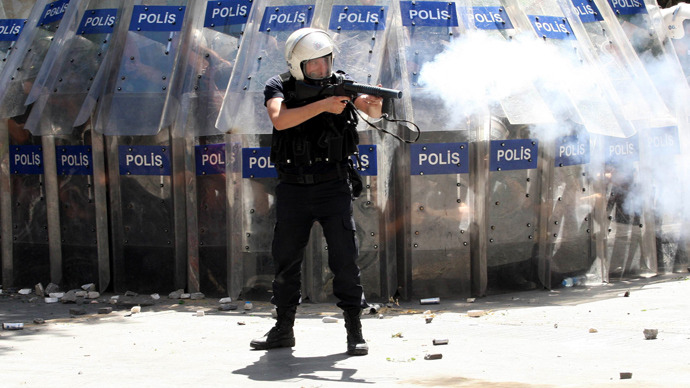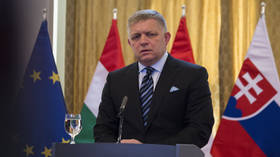‘Democratic and Islamic values clash in Turkey’

The Turkish protests won’t turn into civil war, but it’s a serious warning to Prime Minister Recep Tayyip Erdogan against further Islamization of the state, Dr. Huseyin Bagci from the Middle East Technical University in Ankara told RT.
A wave of violence in Turkey has seen riot police clash with
protesters for a fourth day running in different parts of the
country.
Security forces used tear gas and water cannons as the
demonstrators responded with stones and built barricades.
In the capital, Ankara, the activists also tried to break through
police lines and attack the prime minister's office.
Bagci believes the scale of protests became a real shock for
Erdogan, who previously considered his policies to be flawless
and supported by the Turkish population.
RT: After four days of unrest and a show of force by
police can you simplify people’s frustration and tell us what
exactly is driving them?
Huseyin Bagci: It’s like an eruption of a volcano
concerning the policies of Prime Minister Tayyip Erdogan in the
recent years and in the recent months that he has been mostly
involving in the private affairs of the citizens. And his way of
speaking, his way of doing things has been also considered to
leave the democratic values, to leave the republican values of
the country. And I think this is first time in the last 11 years
that the Turkish government has experienced such a strong public
reaction.
The protestors are coming from different parts of the society.
They have only one aim: to remind the government that in
democracy the politicians can’t do things, taking the people
against them.
RT: The Turkish PM has blamed the opposition
for inciting crowds, whom he dismissed as “a few looters and
thugs.” Could Taksim Square become Erdogan’s Tahrir Square, the
center of Cairo's Arab Spring?
HB: I don’t think so. First of all, in Turkey there’s no
domestic war or civil war conditions at the moment. The reaction
to the government is very strong. This is right. But Turkey is
still a parliamentary democracy and Tayyip Erdogan is getting his
lessons from all these developments. The problem is, Tayyip
Erdogan is criticized [for the] first time so strongly that he’s
also shocked, as he was assuming that his policies are always
right and what he’s doing is good for the country. But the people
are unhappy with his policies in recent years and recent months.
RT: The prime minister did try to smooth the waters by
admitting police had reacted excessively. And yet they don't
appear to be backing off ... Empty words from Erdogan?
HB: [The] police and [the] prime minister’s sayings and
doings contradict each other. I think it’s the first time the
government has been facing such large public protests and
demonstrations. So not only in Istanbul, in even smaller cities,
towns, the people are on the streets and they called that the
government should resign. I think that Turkey is a democratic
society and Tayyip Erdogan is trying to get Turkey into [a] much
more Islamism structure - Islamist state is experiencing these
strong reactions. I think the values of democracy and the
Islamist values are clashing now.
RT: How far does this protest in Turkey have
the potential to go?
HB: It will not be civil war, but it’ll make the life [of
the] prime minister very difficult in the coming weeks and days.
The statements, views and opinions expressed in this column are solely those of the author and do not necessarily represent those of RT.












